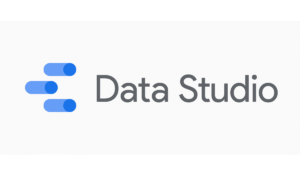In today’s hyper-competitive digital landscape, businesses are no longer competing just on a national level. Instead, they’re increasingly targeting local audiences who are searching for services, products, or experiences nearby. This shift has made local search engine optimization (Local SEO) a critical pillar of online marketing. And at the heart of Local SEO lies one powerful concept: local keywords.
According to Google, nearly 46% of searches have local intent. This means that people are actively looking for local businesses or services, whether it’s “best dentist in Dubai” or “affordable pet grooming near me.” Understanding and implementing local keywords in your strategy not only improves visibility but also ensures you’re reaching customers when and where they need you.
At SEO Khana, we specialize in local SEO strategies tailored to your business and geography. In this guide, we’ll break down what local keywords are, how to find and rank for them, and how to leverage them to outperform your local competition.
What Are Local Keywords?
Local keywords mapping are search phrases that include a geographic location. These terms help businesses appear in search results when users are looking for services in a specific area. Examples include:
- “lawyer in Riyadh”
- “bakery near Al Rehab City”
- “plumbing services in Jeddah”
These keywords directly connect search queries with physical locations. They are essential for businesses that operate in a defined service area and want to drive foot traffic, phone calls, or local inquiries.
Why Are Local Keywords Essential for SEO?
Local keywords play a crucial role in modern SEO strategies, especially for businesses targeting customers in specific geographic areas. Here’s why focusing on geographic targeting is essential:
1. Boosts Visibility in Local Search Results
When users search for products or services with a location in mind such as “best coffee shop in Riyadh” or “plumber near me” search engines prioritize showing results that are geographically relevant. By optimizing your website with relevant terms, you increase your chances of appearing in the highly visible Local Pack (the map and top three listings) on Google, as well as in Google Maps. This targeted visibility connects you directly with potential customers ready to engage with businesses nearby.
2. Improves Conversion Rates
Searches with local intent usually indicate a stronger purchase intent because users are looking for services or products they can access immediately. By using the right location-based terms, your website attracts highly qualified traffic—people more likely to convert into customers. For example, someone searching “emergency dental clinic in Jeddah” is probably ready to book an appointment, unlike generic searches.
3. Enhances Mobile Search Performance
Mobile searches often have location-specific intent. People frequently use their smartphones to find “cafes near me” or “pharmacies open now.” Optimizing for search terms that match user intent ensures your business is discoverable in these critical moments, tapping into a growing user base that relies on nearby search while on the move.
4. Strengthens Brand Authority Within the Community
Ranking well for relevant phrases helps build your brand’s authority and trustworthiness within your geographic area. When your business consistently appears in location-based searches, reviews, and directories, customers begin to recognize you as a leading option in their neighborhood or city. This reputation is invaluable for long-term growth.
5. Supports Competitive Advantage Over National or Global Competitors
Many small to medium-sized businesses cannot realistically compete with national or global companies on broad keywords. However, by honing in on geographic optimization, you can carve out a competitive niche in your community where you have the advantage of proximity and specialized knowledge of the local market. This is where the question often arises: “Moz – should I use national or local keywords?” For most localized businesses, focusing on location-specific terms provides a higher ROI and more measurable results.
6. Enables Better Rank Tracking and Performance Insights
With tools like rank tracking for local keywords, SEO Khana can measure exactly how your business performs in specific locations, allowing for strategic adjustments. This precise tracking is key to understanding what works and what needs improvement, ensuring your SEO efforts are data-driven and results-focused.
How to Find Local Keywords
Knowing how to search local keywords effectively requires a combination of tools, strategies, and competitor insights. Here’s a step-by-step approach:
1. Understand Your Audience’s Intent
Before diving into tools, identify what your potential customers are likely searching for. Are they looking for “emergency electricians,” “vegan cafes,” or “weekend fitness classes” in your area?
2. Use Google Autocomplete and PAA (People Also Ask)
Type your service into Google and see what suggestions appear. For example, typing “dentist in” will reveal options like:
- Dentist in makka
- Dentist in khobar open on Friday
- Best pediatric dentist in Cairo
3. Utilize Keyword Tools
Some top tools include:
- Google Keyword Planner
- Semrush
- Ahrefs
- Moz (especially for local keyword discovery)
- Google Trends
Using these tools, enter your service and location to find relevant search volumes and competition levels. also use latent semantic indexing in seo
4. Analyze Local Competitors
Use the local competitor search function on Semrush or Moz to see what keywords your competitors are ranking for. This gives you valuable insights into what you need to beat them.
5. Check Online Reviews and Forums
Read customer reviews on Google and Yelp. Extract commonly used phrases and questions – these can serve as long-tail keyword ideas.
How to Rank for Local Keywords
Once you find your local keywords, the next step is to optimize your site and content to rank for them.
- Optimize Your On-Page SEO
Use local keywords in:
- Page titles
- Meta descriptions
- H1 and H2 tags
- Image alt texts
- First 100 words of content
- Internal links
Example: Change your homepage title from “Best Cleaning Services” to “Best Cleaning Services in Jeddah.”
- Create Local Landing Pages
If you serve multiple areas, create separate landing pages for each location. Each should be optimized with unique content and include relevant local keywords.
- Build Local Citations
List your business on local directories like Google Business Profile, Yelp, Foursquare, and Yellow Pages. Ensure NAP (Name, Address, Phone) consistency across all platforms.
- Encourage Local Reviews
Ask satisfied customers to leave reviews using location-based keywords. These reviews can improve both rankings and trust.
- Implement Structured Data Markup
Use Schema.org to mark up your business location, hours, and service area, helping search engines understand your local relevance.
How to track rankings for local keywords
Tracking your position in local search results is vital for measuring the effectiveness of your SEO efforts and refining your strategy. At SEO Khana, we prioritize rank tracking for local keywords to give you clear insights into your local search performance. Here’s how you can track rankings for local keywords effectively:
1. Use Specialized Local Rank Tracking Tools
Unlike general rank trackers, local rank tracking tools allow you to monitor your keyword positions within specific cities, neighborhoods, or even zip codes. Popular tools include:
- Moz Local: Well-known for its comprehensive local SEO features, including monitoring local keyword rankings.
- BrightLocal: Offers detailed local rank tracking with geographic filters.
- Whitespark: Known for local citation tracking and ranking insights.
- SEMrush and Ahrefs also provide local ranking features with geo-targeted options.
2. Set Geographic Parameters
When setting up rank tracking, specify the exact locations relevant to your business—whether that’s a city, district, or radius around your physical address. This precision ensures you see how your keywords perform for users in your target area, rather than broad national rankings that may not reflect your local visibility.
3. Track Multiple Devices and Search Types
Local search results can vary depending on the device (mobile vs. desktop) and search type (organic search, maps, or local packs). For a complete picture, use tools that track rankings across these different contexts to understand where your business stands.
4. Monitor Google My Business (GMB) Rankings
Your Google My Business profile heavily influences local rankings. Some rank tracking tools integrate GMB insights or allow you to track how your profile performs for specific local keywords. Monitoring this helps optimize your GMB listing for better local exposure.
5. Analyze Competitor Local Rankings
Use the local competitor search function to identify which keywords competitors rank for in your area. Tracking their performance against yours reveals opportunities and gaps. SEO Khana leverages this data to craft strategies that help you outrank local rivals effectively.
6. Regular Reporting and Adjustment
Rank tracking is not a one-time setup; it requires ongoing monitoring. Weekly or monthly reports highlight trends and fluctuations, allowing SEO Khana to adjust content, backlinks, and technical SEO elements to maintain and improve your rankings.
How can I adapt my link building strategy for local SEO with long-tail keywords?
To improve your website’s visibility in specific areas, it’s important to adjust your link building approach to focus on location-specific, detailed phrases. This helps build authority and relevance within your target community. Here are some effective ways to adapt your strategy:
- Create content focused on your local area
Write guides, blog posts, or service pages tailored to your region. - List your business in trusted local directories
Use descriptive phrases naturally around your links. - Publish guest posts on local blogs or news sites
Reach your audience through well-known regional platforms. - Partner with local influencers or businesses
Collaborate on events, promotions, or shared content. - Get featured in “best of” local roundup pages
Ask to be included in popular community lists. - Use varied and natural anchor text
Combine service and location terms smoothly. - Implement local schema markup
Help search engines understand your geographic relevance. - Analyze competitors’ backlinks
Identify and pursue similar quality link opportunities.
How SEO Khana Supports Local Keyword SEO
At SEO Khana, we offer a comprehensive local SEO solution designed to boost your presence in specific geographic areas. Our services include:
- Customized keyword research tailored to each city or neighborhood
- Development of content strategies focused on regional relevance
- Optimization of your Google Business Profile to enhance local engagement
- Implementation of structured data to improve search engine understanding
- Continuous monitoring of search rankings for location-specific terms
- In-depth competitor analysis and detailed performance reports
As a leading content creation agency in Saudi Arabia, SEO Khana applies targeted strategies that deliver real results. Our clients benefit from enhanced online visibility, increased foot traffic, and a measurable rise in direct customer inquiries driving growth in today’s competitive digital landscape.
FAQ
Q1: How to identify long-tail keywords for local SEO?
Use keyword tools like Semrush, AnswerThePublic, and Moz. Look for search phrases with geographic modifiers and specific service descriptions.
Q2: How to search local keywords?
Use Google autocomplete, explore “People Also Ask”, and analyze competitor websites and local directories.
Q3: How to research keywords for local SEO?
Identify customer intent, analyze competitors, use tools like Google Trends, and evaluate real customer reviews.
Q4: How to find keywords for local SEO?
Focus on combining service + location. For example, “car wash in Heliopolis” or “best pizza in Dubai”.
Q5: How to rank for local keywords?
Optimize your content, Google Business Profile, meta tags, internal links, and gain backlinks from local sources.
Q6: Local competitor search function: what keywords do I need to beat them?
Use Moz or Semrush to find keywords your competitors rank for. Improve on their content and build better backlinks.
Conclusion
Mastering local SEO begins with a strong foundation in the keywords. These location-based search terms help your business connect with high-intent users who are ready to buy. From keyword discovery to content optimization, local link building, and rank tracking for local keywords, your strategy must be both comprehensive and precise.
At SEO Khana, we help businesses turn local traffic into real-world results. Whether you’re running a single storefront or a multi-location enterprise, our team of experts crafts custom strategies that make your brand a neighborhood name.







